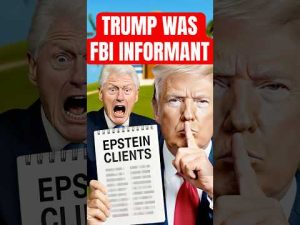In a world where political drama unfolds like a gripping soap opera, the latest episode centers around President Biden and the curious matter of autopen signatures. This eyebrow-raising issue has captured the attention of lawmakers and legal experts alike after reports surfaced suggesting that the President may not have authorized the use of an autopen for clemency grants. With Congress gearing up to explore this puzzling predicament, questions are swirling through the air like confetti at a parade.
Kristina Bob, a former attorney for Donald Trump and current member of Judicial Watch, has penned a new book titled “Defiant: Inside the Mar-a-Lago Raid and the Left’s Ongoing Lawfare.” In light of the autopen controversy, her insights are particularly timely. It seems that the legality of the clemency grants is now under scrutiny, throwing into question whether those released might find themselves back behind bars. If it turns out that Biden’s signature wasn’t genuinely his, a courtroom drama like no other could be on the horizon, complete with lawyers battling it out over legal technicalities. Meanwhile, Bob pointed out that there is a clear record when an autopen is authorized; proving that it was used correctly is the challenge.
As the plot thickens, there’s also the matter of Biden’s administration scrambling to defend itself. After all, no one wants to be caught in a scandal regarding clemency signatures, especially when it might jeopardize careers. The stakes are high, and some individuals may find themselves exploring their options under the pressure of potential subpoenas. It’s not hard to imagine the tense atmosphere within the Capitol as politicians decide whether to back the embattled President or save their own skins instead.
But while congressional committees get ready to unravel the autopen mystery, the U.S. government is launching a military response to the surging expertise of drug cartels operating out of the Caribbean. To combat this dangerous threat, ten F-35 fighter jets are being dispatched to Puerto Rico. This strategic move has the grand goal of demonstrating that the United States will not stand idly by while drug runners undermine the stability of the nation. Such military action comes after an aggressive campaign targeting drug traffickers, highlighting a significant shift in focus towards protecting American interests both at home and abroad.
In response to questions regarding the legality of these military actions, experts like David Kelman, a former prosecutor and current attorney, assert the government’s right to take action to protect its citizens. After all, with a jaw-dropping 100,000 Americans dying annually due to drug overdoses, individuals are not just facing an epidemic, but a full-on assault from those capitalizing on the nation’s vulnerabilities. International laws support the government’s actions against notorious drug cartels, leaving little room for doubt about the legality of countering these threats.
So, as the nation holds its breath waiting for the verdict on both autopen signatures and cartel incursions, one thing is for certain: Politics and law enforcement have never been more intertwined. With every twist and turn, the American public is reminded that vigilance is key in both understanding the complexities of governance and maintaining security against those who threaten it. Only time will tell how this saga will unfold, but it promises to keep the audience on the edge of their seats for quite some time.







